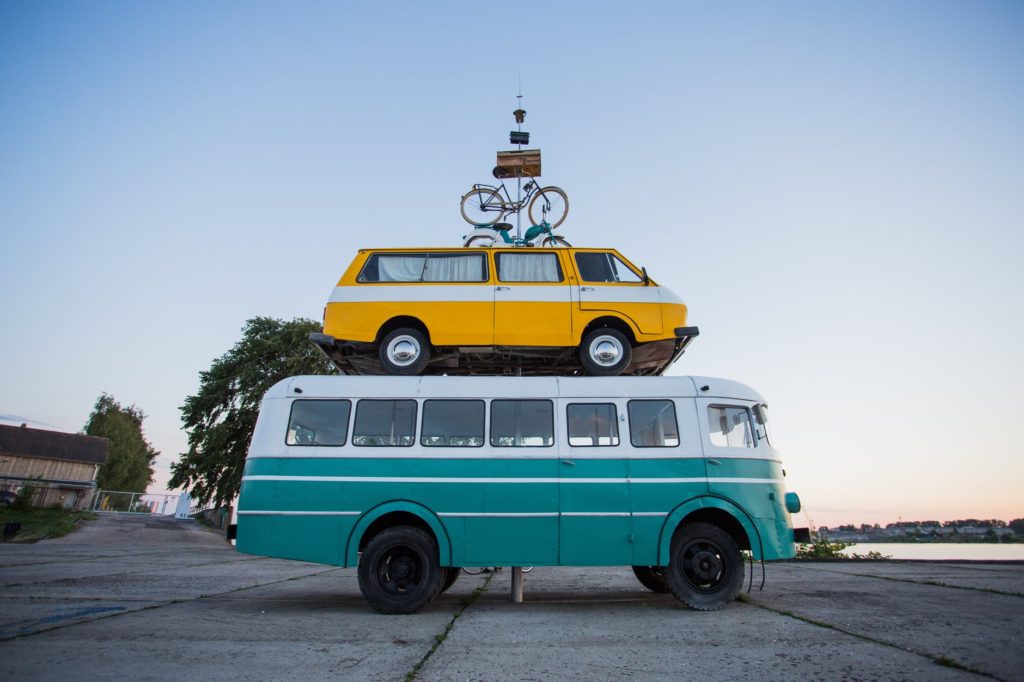
The differences between being a domestic and international digital nomad are particularly important in the virus recovery period. While vaccines have begun to roll out, it will be a while before things are “back to normal”.
I have the pleasure of co-writing this piece with Christina Davis, a digital nomad coach who’s gained a wealth of knowledge living around the world, and in Bali, Indonesia the bulk of the pandemic. Christina hosts the Nomadic Freedom Course, a 12 week program to help you start your nomad life.
You can follow Christina on Instagram: Christinaadavis![]()
Follow Origin Story at Originstoryblog![]()


Let’s start by reviewing domestic travel.
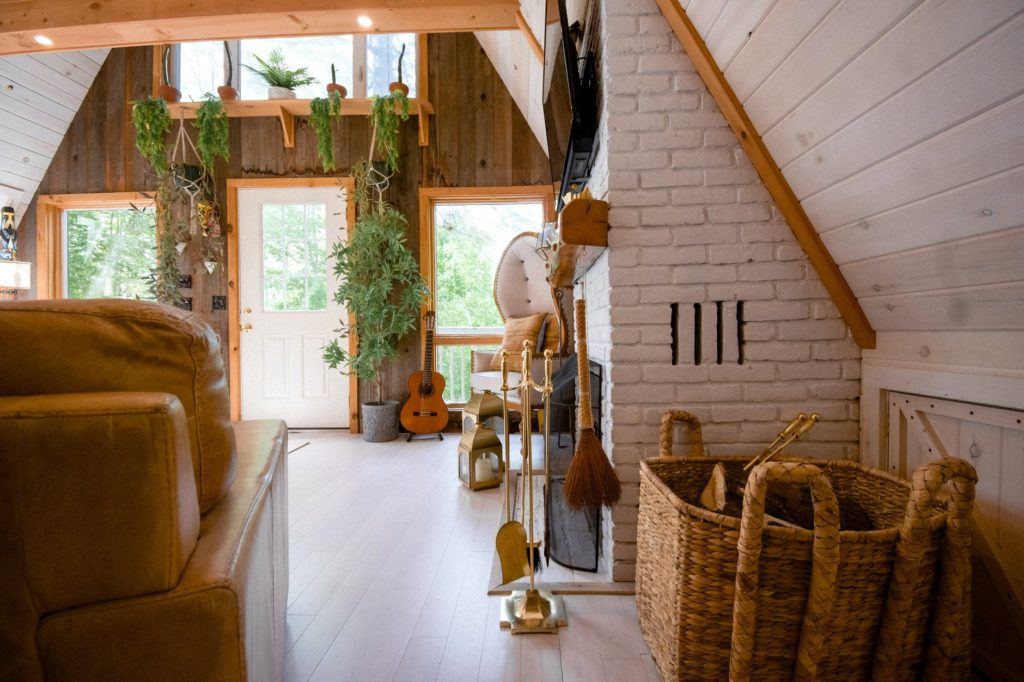
Domestic Travel (Adam Smith)
Managing your Rental Bookings Schedule
The volume of bookings for vacation rentals as skyrocketed since the virus outbreak began. When you’re in the middle of the country, far from your home city, the last thing you want is no place to live.
This is greatly dependent on the amount of time you want to book. If you’re only staying in a place for 2 days, it may be easy to find. If you book for a month, AirBnB in particular will give you a deep discount (Usually 25%+). However, these monthlong stays are also available for short-term bookings. Don’t let a 2-3 day renter book right in the middle of your intended monthly stay. Book early! 3 months ahead, minimum.
It’s important to keep a wishlist of places to book, months before you confirm them. I like to spend some time on a Friday night looking at “dream bookings”.
Finding Appropriate Workspace
You have to think ahead about how you’re going to get your work done. If you thought finding a quiet space at home was difficult, try doing it in an AirBnB.
When booking vacation rentals, you want to thoroughly ask the host about wi-fi speed, table and chair setups available, how sound carries through rooms, even how noisy the neighbors are.
Some vacation rentals can actually lack a workspace, and you must improvise one. For me, chest-height window ledges have worked similarly to a standing desk.

Scheduling for the Weather
Have you thought about heading to California or Florida to escape the winter, living in balmy weather on the beach?
Great. There’s one problem with that. Every region has weather challenges. It’s not always 72° and sunny.
In 2020, California and the West had some of the worst forest fires in their history. There were 13,887 wildfires last year. 46 people died. Always be prepared. The 2020 U.S. hurricane season produced 30 named storms, with 10 making U.S. landfall. This is the most since 1916.
In this way, you don’t want to be in the dry West during wildfire season (approx. July to November) or the Eastern coastal areas during hurricane season (June to November). Instead, think about the opposite during those times – the Pacific Northwest, or perhaps the Great Lakes!
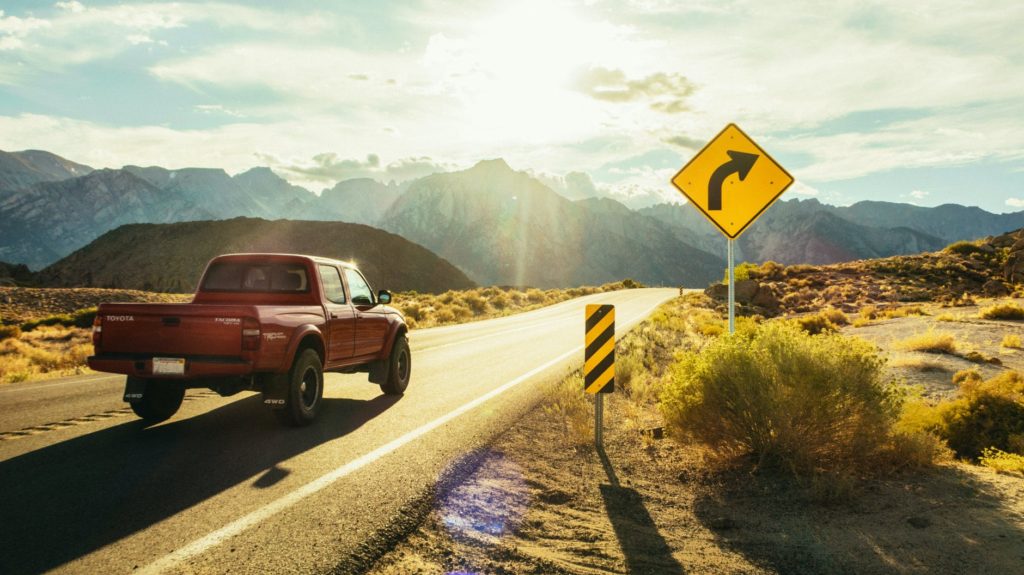
Living on the Road
If you’re going to be living on the road, you need to have a good vehicle. If you’ve rented a car on vacation before, it may have seemed expensive. In this way, day-to-day rentals are not ideal. Get a “mini rental lease” and lock in a rate. You’ll thank yourself that you did.
You also have the option to buy. Oftentimes, this is even cheaper than renting, but comes with the commitment of owning a vehicle. Not to worry though, pre-recovery, the automotive market continues to be hot. I wrote more about this in my recent article, “The Road Warrior“.
Working for an Established Company Remotely
I was fortunate to spend 2020 at a company that weathered the virus crisis well. Not only were we already set up for remote working, with flexible time off, we actually debuted on the public markets during that time.
Not all digital nomads will be this lucky. If you’re currently employed full-time, ask your company when they plan for their “return to office”. If you’re currently interviewing, ask about their remote working policy up front, and strongly consider their financial stability. Say that you’re working for yourself, these rules don’t apply, however, have enough backup savings so that you won’t go bust while on the road.

International Travel (Christina Davis)
Managing Plane Flight Schedules & Bargains
When flying internationally, it’s imperative to compare your flights across multiple sites. I use a combination of booking options when planning trips, to make sure I’m getting the best deals possible! Which site I begin with depends on whether I have a clear destination,or if I’m looking for overall travel deals for certain time frames.
If I’m looking for the best deals with an undecided location, I will begin my search on Skyscanner. It’s great whether you’re looking for specific travel dates or just a general time period. You can go into the platform, type in your origin flight location and type in “Everywhere” as your destination, while also choosing dates you’d like to travel on. This will populate a list of countries, ranging from least to most expensive cost for a flight. As you click on each country, it will also provide you with a list of cities withgreat travel deals. If you know the destination you’d like to travel to, Skyscanner also can look at prices for the entire month, so you can choose the cheapest days available!
After finding the best deal, I’ll look at which of the booking options are available for Skyscanner. I will only book my tickets through the direct airline website or trusted sources, such as Expedia. I HIGHLY warn against booking directly with unknown 3rd party providers such as Kiwi, eDreams, MyTrip, etc. Although it may seem tempting because of the lower price, these companies usually DO NOT have customer service options if anything goes wrong with the flights. That includes delays, cancellations, baggage loss, etc.
I’ll also use Google Flights to price compare formy trips, in case there is another option that Skyscanner hasn’t listed. After this comparison, I’ll go directly to the airline’s website, which may list current deals or promotions they are having. Lastly, I’ll use my credit card travel booking system to compare the cost. If you have a credit card that allows you to use points for travel, this can be a MASSIVE help, as you can pay for either your whole trip or partial trip with your credit card points. I have even found that sometimes the prices were cheaper even without using points!
Bonus Tip: If you’re watching flights, make sure when you are opening an Incognito or Private Browser option, as your smartphone and computer are tracking your cookies, and the more you search a flight, the higher the price can actually become!
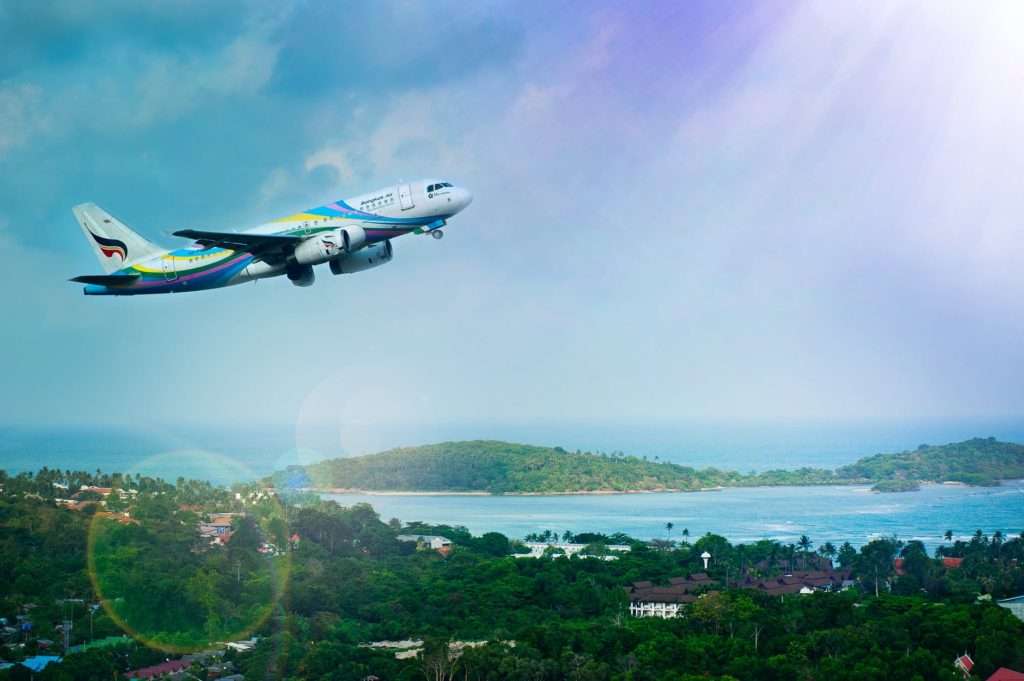
Managing Bookings (Hostels, Hotels, etc.)
When traveling internationally, I like to weigh out the different options for the type of travel I’m doing. If I’m backpacking or solo traveling, I’ll tend to look for a hostel, as it provides a social aspect to meet other travelers, while also being affordable. There are a range of different hostels you can stay at, with different amenities based on what atmosphere you are looking for. I usually will use Hostelworld.com when comparing hostels, reading reviews and booking my stay.
If I’m looking for a different type of accommodation, I will usually book for hotels or AirBnBs. AnAirBnB can be a really nice way to stay in a neighborhood where more locals may be living. Also, many AirBnB hosts can help give you suggestions for top sites or restaurants in the area. AirBnB is a great option for a more homey feel when traveling. All hotel search engines such as Booking.com, Expedia.com or Hotels.com allow you to sort through hotel options, allowing you to find the best deal!
Working for Yourself on the Road
While on the road, it’s important to create a routine for yourself. This allows you to focus on your work, enjoy the new city you are in, and also not get too easily distracted. While traveling, I look for a city in which I can set myself up for 2-4 weeks to work and explore. So ask yourself: “What type of daily routine can I hold to be productive with work and also enjoy my new city?”
For me, I’ll create a morning routine to start my day, then head off to a local cafe to work for a few hours. I love being able to work from cafes, have great food, and still feel like I’m a part of the town. Within my day, I’ll allow myself time to meet up with a friend, go for a beach/downtown walk, or whatever I can fit in. Afterwards, I’ll continue working until about dinner time, afterwards using the rest of the time to enjoy myself. Remember, you’re working for yourself, so you have the ability to create the life you want. Just always remember to never lose sight of your own work.
Finding Appropriate Workspace
When working in new cities, I find it extremely helpful to look for either coworking spaces or local cafes that have good wifi. To find these in a new city, I’ll do some research online, and join any digital nomad Facebook groups to ask for others’ suggestions! I always like to try out different places around the city, find my favorite few and use those as my new working spaces to get myself out of the house and enjoy the scenery of my new city! Coworking/cafes are great ways to meet new people and network with people from all over the world!
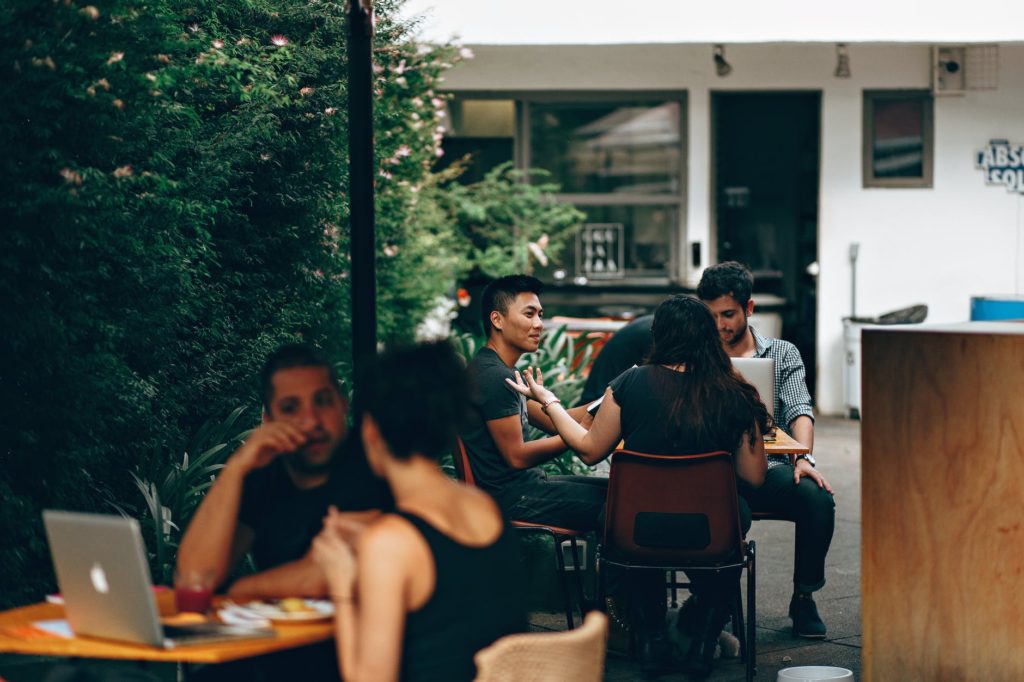
Mitigating Language Barriers
Depending on the country you are in, you may come across some language barriers. When I am going to a new country, I usually will find out how to say common phrases through Google Translate, or language learning apps like Duolingo. I always find that when you make an effort to speak the local language, locals appreciate it very much! It involves a mutual respect for local cultures. It’s a great thing to know, because you’ll find some locals will then even help you learn some more.
If you’re in a tough situation where you need to speak more in-depth, or are unable to read signs, Google Translate is extremely helpful. When you download the app onto your phone, you are able to let the other person speak into your phone, and the app will instantly translate what they are saying for you. In addition, you can now point your camera at signs or menus, and the app is able to translate it into the language you need. This can be super helpful in countries or situations where language barriers are difficult to overcome.
Travel after COVID
When traveling after COVID internationally, it’s super important to do extensive research on the restrictions of the country / city you’re going to. You want to make sure you are fully prepared for all requirements pre and post travel. For international travel, you should check not only the country’s government website for requirements to enter the country, but also the airlines. With rules changing constantly, you don’t need an unwanted surprise at the airport. Therefore, before traveling, make sure you check vaccination rules, PCR testing type needed, time frame in which test is valid, and quarantine rules.
When researching restrictions, make sure you’re reading from valid sources such as government websites, CDC or airline-specific information. If you do travel internationally, remember to respect locals by always abiding by their COVID related rules for curfews, gatherings and masks! If you are not prepared to respect regulations, then it may result in fines, arrest or even deportation. There have been incidents for example in Bali, where influencers went into a supermarket with a painted mask on their face as a prank, and were quickly deported out of Indonesia for breaking the law. Many countries recently reopened their borders, or are providing visas to be able to travel or work remotely again. Whether traveling for tourism or business, it is imperative that you do research to learn the country’s specific requirements. Traveling post-COVID is quite doable, and can still be safe, as long as you take the proper precautions!
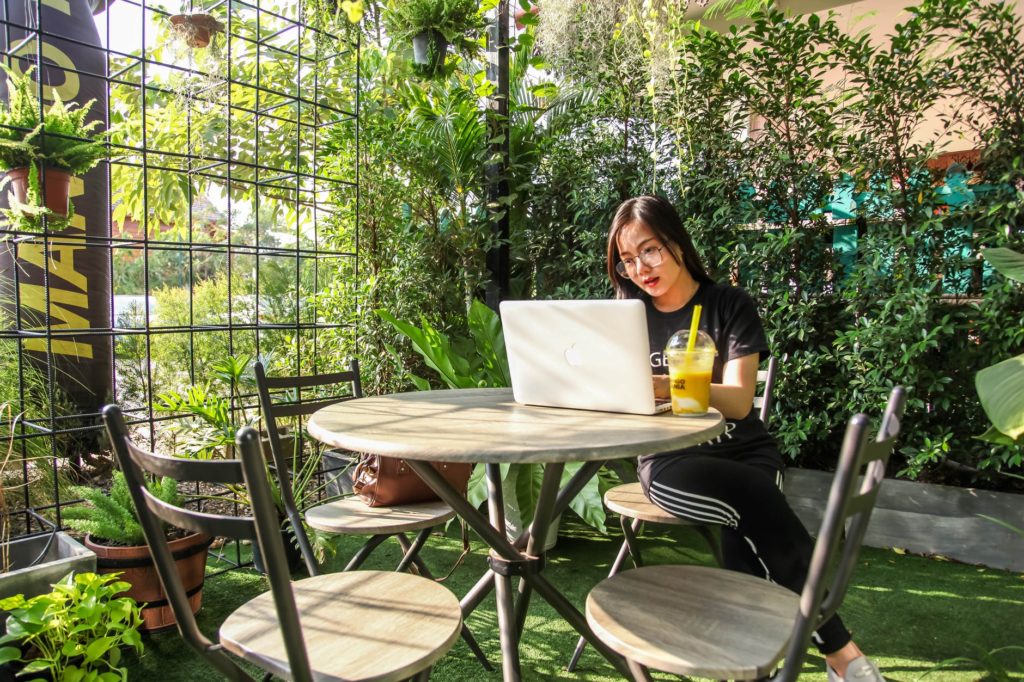
Do You Dream of Living and Working Abroad?
If you’ve ever dreamed of becoming a digital nomad, living and working abroad, and having the freedom to create the life you have dreamed of, my Nomadic Freedom Course is the perfect fit for you. The Nomadic Freedom Course is a 12 week program where we shift your mindset, conquer your fears of going after this dream and build and scale an online business that you are passionate about. We will work to build and grow your business to allow you to sustain a life of adventure, freedom and location independence. This lifestyle is not reserved for the privileged, it is reserved for those who want it badly enough to take the leap!
If you are looking to make that shift in your life and create your dream life, apply now to join the Nomadic Freedom Course. A thousand miles begins with just one step, so let’s get chatting!

